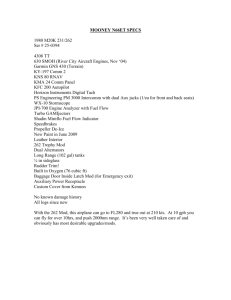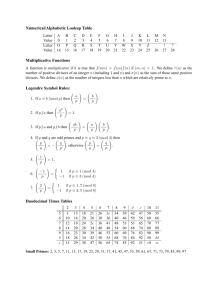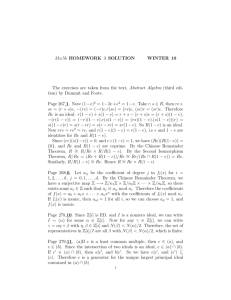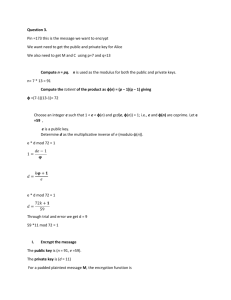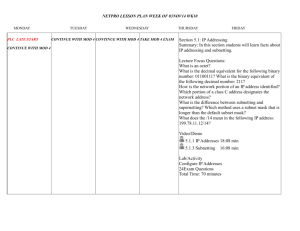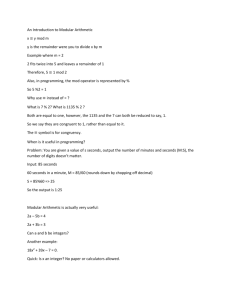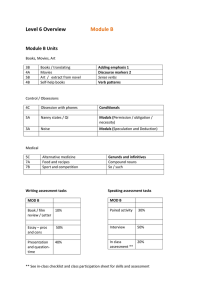Syllabus
advertisement
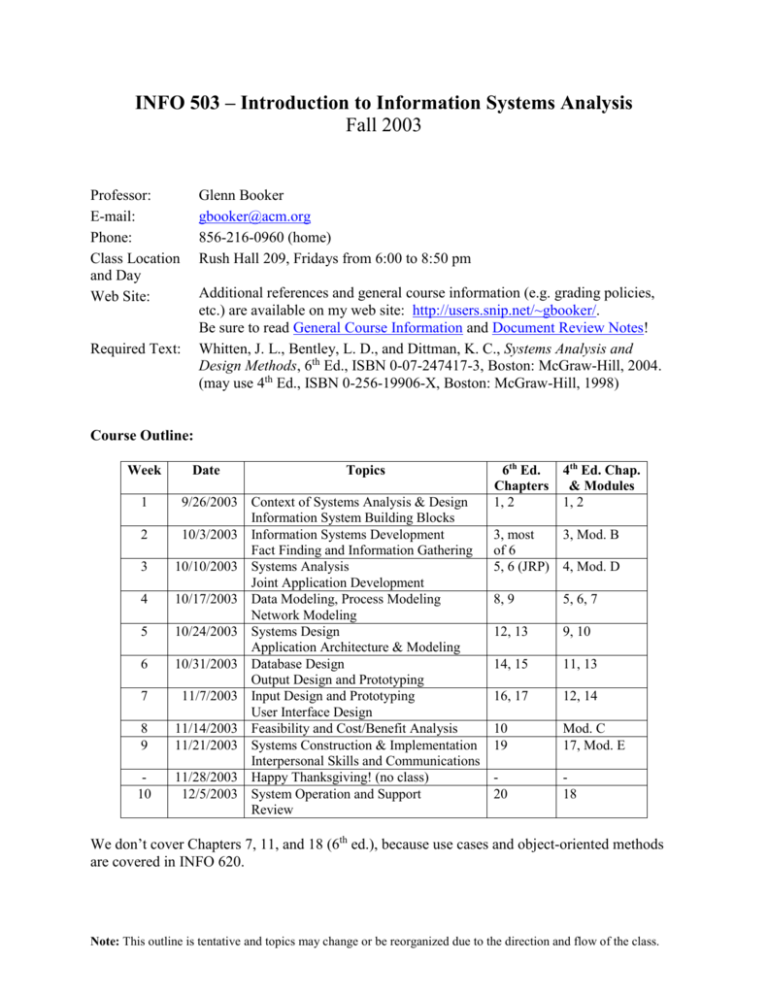
INFO 503 – Introduction to Information Systems Analysis Fall 2003 Professor: E-mail: Phone: Class Location and Day Web Site: Glenn Booker gbooker@acm.org 856-216-0960 (home) Rush Hall 209, Fridays from 6:00 to 8:50 pm Additional references and general course information (e.g. grading policies, etc.) are available on my web site: http://users.snip.net/~gbooker/. Be sure to read General Course Information and Document Review Notes! Whitten, J. L., Bentley, L. D., and Dittman, K. C., Systems Analysis and Design Methods, 6th Ed., ISBN 0-07-247417-3, Boston: McGraw-Hill, 2004. (may use 4th Ed., ISBN 0-256-19906-X, Boston: McGraw-Hill, 1998) Required Text: Course Outline: Week 1 2 3 4 5 6 7 8 9 10 Date Topics 9/26/2003 Context of Systems Analysis & Design Information System Building Blocks 10/3/2003 Information Systems Development Fact Finding and Information Gathering 10/10/2003 Systems Analysis Joint Application Development 10/17/2003 Data Modeling, Process Modeling Network Modeling 10/24/2003 Systems Design Application Architecture & Modeling 10/31/2003 Database Design Output Design and Prototyping 11/7/2003 Input Design and Prototyping User Interface Design 11/14/2003 Feasibility and Cost/Benefit Analysis 11/21/2003 Systems Construction & Implementation Interpersonal Skills and Communications 11/28/2003 Happy Thanksgiving! (no class) 12/5/2003 System Operation and Support Review 6th Ed. Chapters 1, 2 4th Ed. Chap. & Modules 1, 2 3, most 3, Mod. B of 6 5, 6 (JRP) 4, Mod. D 8, 9 5, 6, 7 12, 13 9, 10 14, 15 11, 13 16, 17 12, 14 10 19 Mod. C 17, Mod. E 20 18 We don’t cover Chapters 7, 11, and 18 (6th ed.), because use cases and object-oriented methods are covered in INFO 620. Note: This outline is tentative and topics may change or be reorganized due to the direction and flow of the class. Course Description This course systematically describes the entire life cycle needed to create an information system, including aspects such as requirements analysis, system architecture, interface design, and basic project management concerns. We deliberately touch lightly on many topics, in order to see how they fit together. The course also provides an overview of traditional information engineering and structured analysis methods to perform information system analysis and design. Information engineering focuses on data modeling using an Entity Relationship Diagram (ERD), while structured analysis focuses on process modeling using a Data Flow Diagram (DFD). If you have just started your degree program, this course will help set the stage for diving into various topics in more detail. If you are near the end of your degree program, it can help place everything you’ve learned into a larger context, and show how the various techniques work together to produce a meaningful system. Course Assessment and Assignments Assignment 1 2 3 4 Activity Due on Weighting Scope of System Development 10/10/03 15% System Analysis and Requirements Definition 10/24/2003 25% System Modeling and Design 11/7/2003 25% Database Design 11/21/2003 25% Participation 10% TOTAL: 100% Assignments are done by groups of 2-4 people; the groups are chosen by you in class, and stay together through the course. There are no tests, quizzes, midterms, or final exam. Note: This outline is tentative and topics may change or be reorganized due to the direction and flow of the class.

